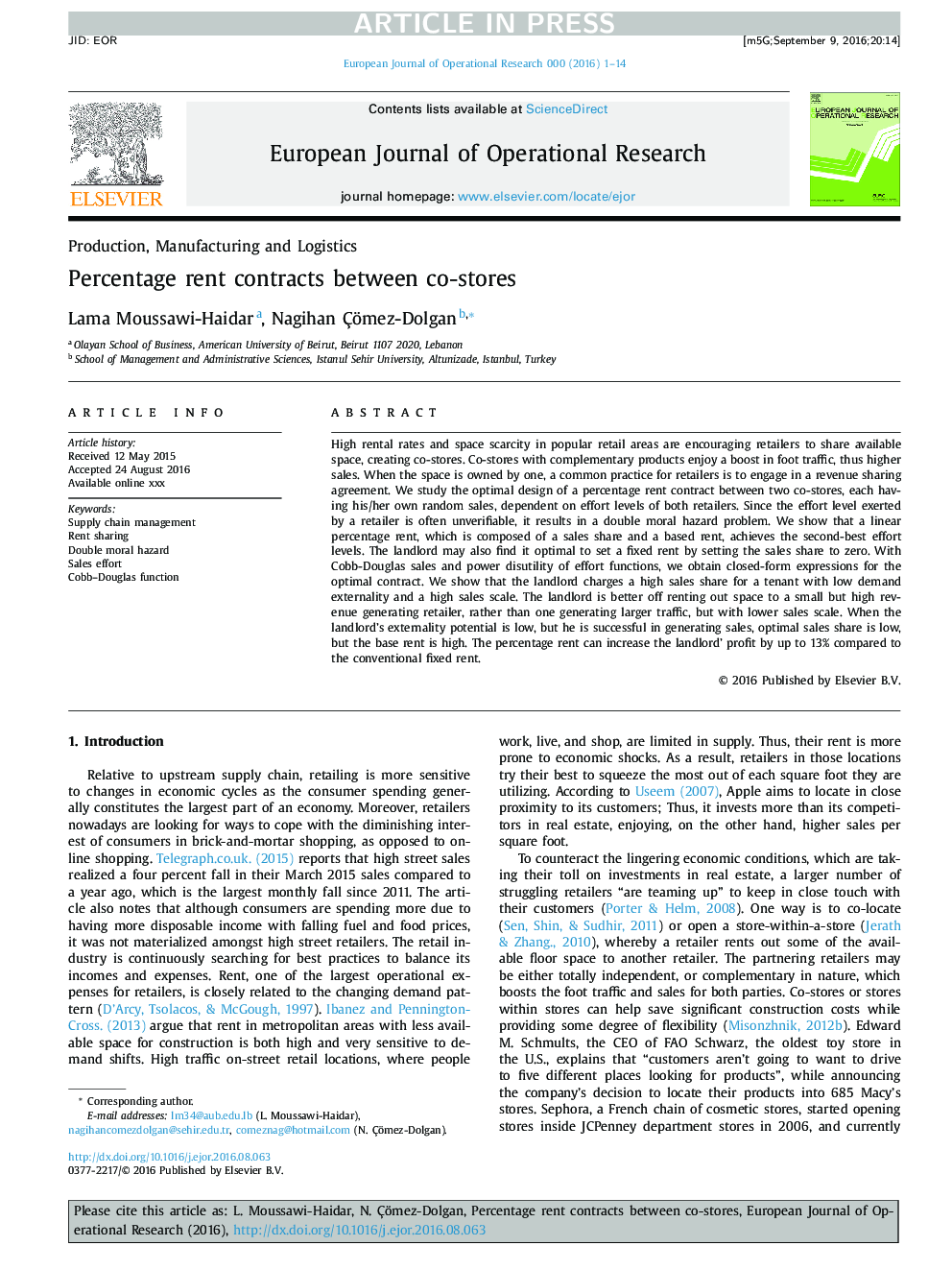| Article ID | Journal | Published Year | Pages | File Type |
|---|---|---|---|---|
| 4959777 | European Journal of Operational Research | 2017 | 14 Pages |
Abstract
High rental rates and space scarcity in popular retail areas are encouraging retailers to share available space, creating co-stores. Co-stores with complementary products enjoy a boost in foot traffic, thus higher sales. When the space is owned by one, a common practice for retailers is to engage in a revenue sharing agreement. We study the optimal design of a percentage rent contract between two co-stores, each having his/her own random sales, dependent on effort levels of both retailers. Since the effort level exerted by a retailer is often unverifiable, it results in a double moral hazard problem. We show that a linear percentage rent, which is composed of a sales share and a based rent, achieves the second-best effort levels. The landlord may also find it optimal to set a fixed rent by setting the sales share to zero. With Cobb-Douglas sales and power disutility of effort functions, we obtain closed-form expressions for the optimal contract. We show that the landlord charges a high sales share for a tenant with low demand externality and a high sales scale. The landlord is better off renting out space to a small but high revenue generating retailer, rather than one generating larger traffic, but with lower sales scale. When the landlord's externality potential is low, but he is successful in generating sales, optimal sales share is low, but the base rent is high. The percentage rent can increase the landlord' profit by up to 13% compared to the conventional fixed rent.
Related Topics
Physical Sciences and Engineering
Computer Science
Computer Science (General)
Authors
Lama Moussawi-Haidar, Nagihan Ãömez-Dolgan,
